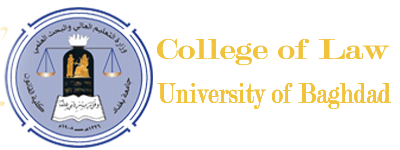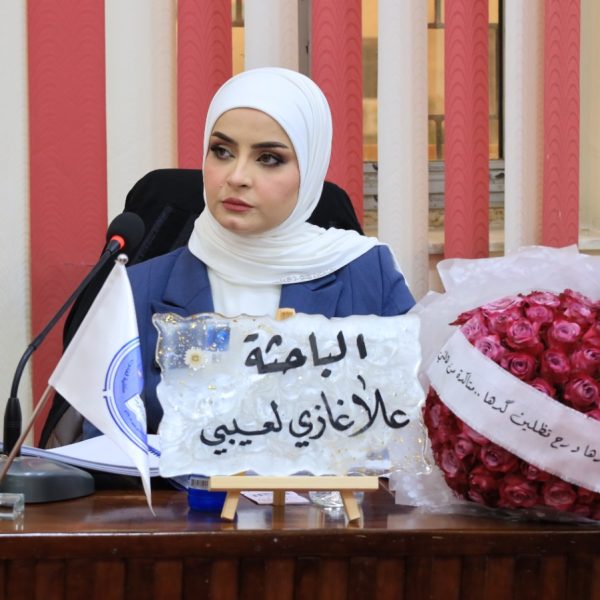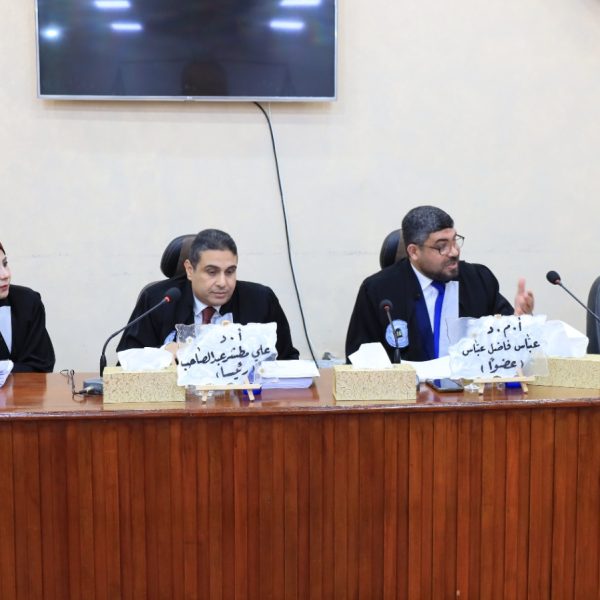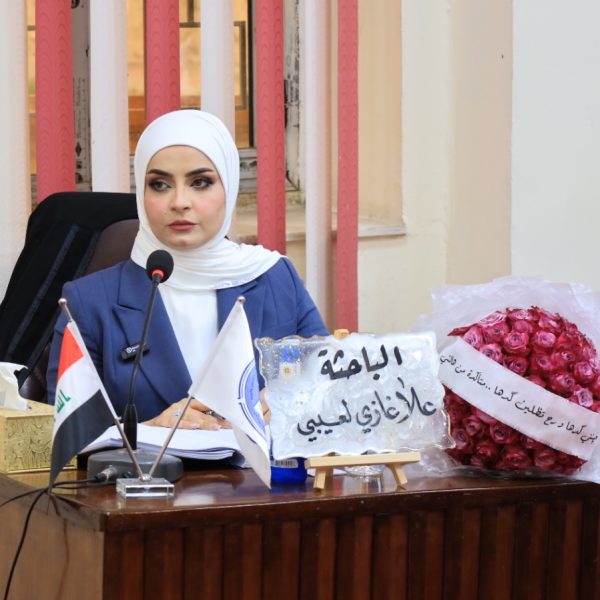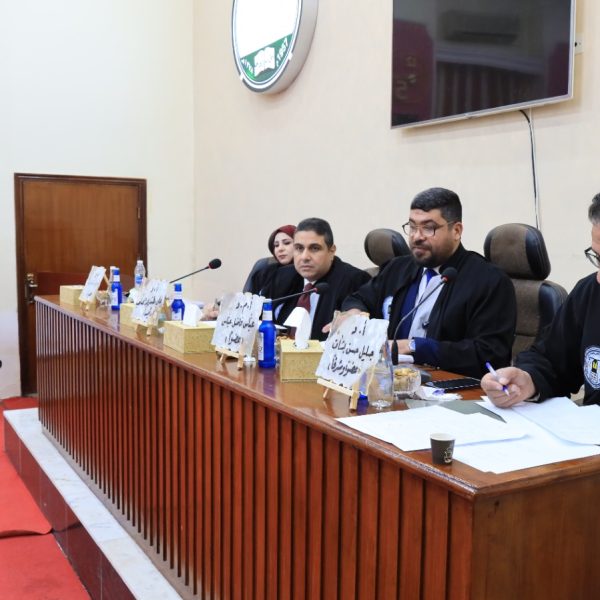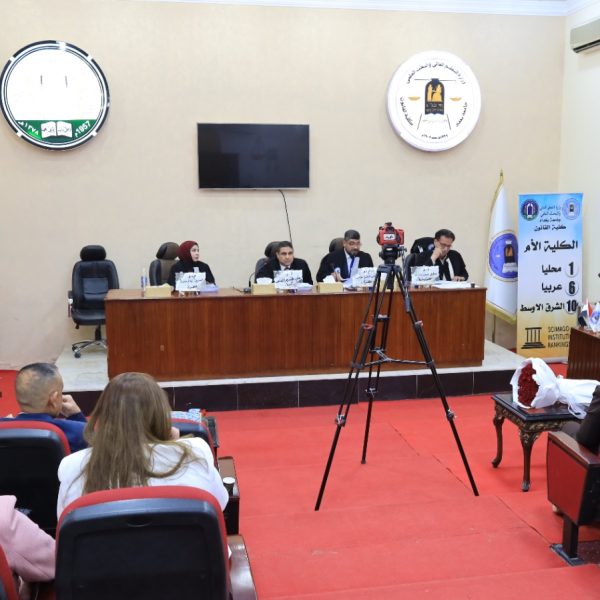The college of Law at the University of Baghdad discussed the master’s thesis in the Private Law by the student Ola Ghazi Laibi, titled “The Legal Organization of Artificial Intelligent Agents – A Comparative Study”, on Thursday, February 20, 2025, at the Conference Hall in the Faculty.
The discussion committee consisted of:
- Prof. Dr. Ali Mutashir Abdul-Sahib – Chairman
- Assist. Prof. Dr. Abbas Fadel Abbas – Member
- Dr. Nisreen Ghanem Hanoon – Member
- Prof. Dr. Jalil Hassan Bashat – Member and Supervisor
The thesis aimed to analyze and study the legal organization of artificial intelligent agents by identifying the legal framework governing their operations and legal characterization. Additionally, it addressed the legal responsibility arising from their actions, with the goal of providing a clear legal perspective that helps keep pace with technological advancements in artificial intelligence and suggesting appropriate legislative solutions.
The thesis consisted of three chapters:
- The first chapter discussed the concept of the artificial intelligent agent.
- The second chapter focused on the formation and execution of contracts concluded via artificial intelligent agents.
- The third chapter dealt with the provisions of civil liability for breaches of contracts concluded via artificial intelligent agents.
The thesis concluded with several important recommendations, including:
- Proposing the introduction of a text addressing the legal status of the artificial intelligent agent, whether by granting it legal personality or considering it a digital entity representing a person, either natural or legal.
- Proposing the introduction of a text outlining the role of the artificial intelligent agent in the negotiation phase, as a preceding stage to contract conclusion, and conferring legal value to the physical actions and procedures it undertakes, in order to protect the parties dealing with this type of intelligent agent and define the scope of liability when harm occurs during this phase.
-
Proposing the introduction of a text to regulate the operation of Oracle software and the conditions that must be met for this program, as it serves as a link between the real world and the digital space.
